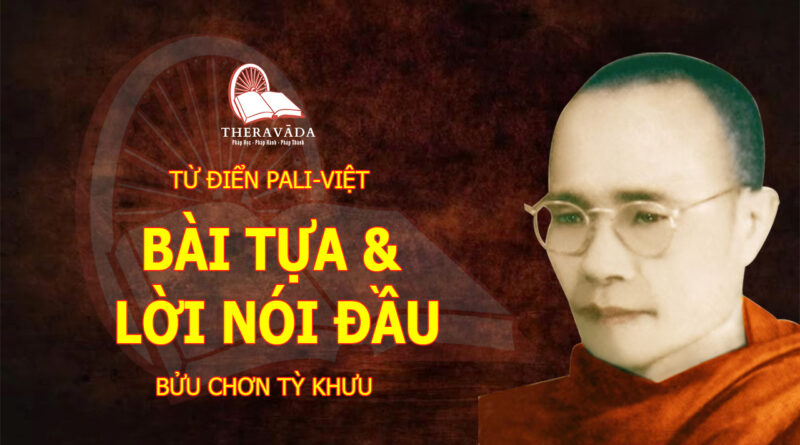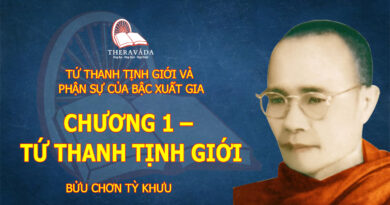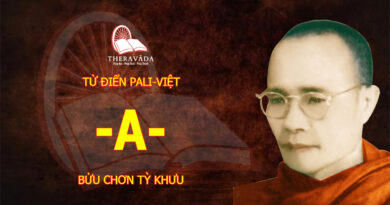Q&a 5 – The Art Of Living – S.n. Goenka
Questions and Answers
QUESTION: Isn’t performing right action a kind of attachment?
N. GOENKA: No. It is simply doing your best, understanding that the results are beyond your control. You do your job and leave the results to nature, to Dhamma: “Thy will be done.”
Then it is being willing to make a mistake?
If you make a mistake you accept it, and try not to repeat it the next time. Again you may fail; again you smile and try a different way. If you can smile in the face of failure, you are not attached. But if failure depresses you and success makes you elated, you are certainly attached.
Then right action is only the effort you make, not the result?
Not the result. That will automatically be good if your action is good. Dhamma takes care of that. We do not have the power to choose the result, but we can choose our actions. Just do the best you can.
Is it wrong action to harm another accidentally?
No. There must be an intention to harm a particular being, and one must succeed in causing harm; only then is wrong action completed. Sīla should not be taken to an extreme, which would be neither practical nor beneficial. On the other hand, it is equally dangerous to be so careless in your actions that you keep harming others, and then excuse yourself on the grounds that you had no intention of causing harm. Dhamma teaches us to be mindful.
What is the difference between right and wrong sexual conduct? Is it a question of volition?
No. Sex has a proper place in the life of a householder. It should not be forcibly suppressed, because a forced celibacy produces tensions which create more problems, more difficulties. However, if you give free license to the sexual urge, and allow yourself to have sexual relations with anyone whenever passion arises, then you can never free your mind of passion. Avoiding these two equally dangerous extremes, Dhamma offers a middle path, a healthy expression of sexuality which still permits spiritual development, and that is sexua relations between two people who are committed To each other. And if your partner is also a Vipassana meditator, whenever passion arises you both observe it. This is neither suppression nor free license. By observing you can easily free yourself of passion. At times a couple will still have sexual relations, but gradually they develop toward the stage in which sex has no meaning at all. This is the stage of real, natural celibacy, when not even a thought of passion arises in the mind. This celibacy gives a joy far beyond any sexual satisfaction. Always one feels so contented, so harmonious. One must learn to experience this real happiness.
In the West, many think that sexual relations between any two consenting adults are permissible.
That view is far away from Dhamma. Someone who has sex with one person, then another, and then someone else, is multiplying his passion, his misery. You must be either committed to one person or living in celibacy.
How about the use of drugs as aids to experience other types of consciousness, different realities?
Some students have told me that by using psychedelic drugs they passed through experiences similar to those they encountered in meditation. Whether or not this is really so, having a drug-induced experience is a form of dependence on an outside agency. Dhamma, however, teaches you to become your own master so that you can experience reality at will, whenever you wish. And another very important difference is that the use of drugs causes many people to lose their mental balance and to harm themselves, while the experience of truth by the practice of Dhamma causes meditators to become more balanced, without harming themselves or anyone else.
Is the fifth precept to abstain from intoxicants or to abstain from becoming intoxicated? After all, drinking in moderation, without becoming drunk, does not seem particularly harmful. Or are you saying that drinking even one glass of alcohol is breaking sīla?
By drinking even a small amount, in the long run you develop a craving for alcohol. You don’t realize it but you take a first step toward addiction, which is certainly harmful to yourself and others. Every addict starts by taking just one glass. Why take the first step toward suffering.? If you practise meditation seriously and one day you drink a glass of wine out of forgetfulness or at a social gathering, that day you will find that your meditation is weak. Dhamma cannot go together with the use of intoxicants. If you really wish to develop in Dhamma, you must stay free from all intoxicants. This is the experience of thousands of meditators.
The two precepts concerning sexual misconduct and the use of intoxicants particularly need to be understood by people from Western countries.
People here often say, “If it feels good, it must be right.”
Because they don’t see reality. When you perform an action out of aversion, automatically you are aware of agitation in the mind. When, however, you perform an action out of craving, it seems pleasant at the surface level of the mind, but there is an agitation at a deeper level. You feel good only out of ignorance. When you realize how you harm yourself by such actions, naturally you stop committing them.
Is it breaking sīla to eat meat?
No, not unless you have killed the animal yourself. If meat happens to be provided for you and you enjoy its taste as you would that of any other food, you have not broken any precept. But of course by eating meat you indirectly encourage someone else to break the precepts by killing. And also at a subtler level you harm yourself by eating meat. Every moment an animal generates craving and aversion; it is incapable of observing itself, of purifying its mind.
Every fibre of its body becomes permeated with craving and aversion. This is the input you receive when eating non-vegetarian food. A meditator is trying to eradicate craving and aversion, and therefore would find it helpful to avoid such food.
Is that why only vegetarian food is served at a course?
Yes, because it is best for Vipassana meditation.
Do you recommend vegetarianism in daily life?
That is also helpful.
How can making money be acceptable conduct for a meditator?
If you practise Dhamma, you are happy even if you don’t make money. But if you make money and do not practise Dhamma, you remain unhappy. Dhamma is more important. As someone living in the world, you have to support yourself. You must earn money by honest, hard work; there is nothing wrong in that. But do it with Dhamma.
If somewhere down the road your work may have an effect that is not good, if what you do can be used in a negative way, is that wrong livelihood?
It depends on your intention. If you are concerned only to accumulate money, if you think, “Let others be harmed, I don’t care so long as I get my money,” this is wrong livelihood. But if your intention is to serve and nevertheless someone is harmed, you are not to blame for that.
My company produces an instrument that, among other things, is used to gather data on atomic explosions. They asked me to work on this product, and somehow it did not seem right to me.
If something will be used only for harming others, certainly you should not be involved in that. But if it can be used for positive as well as negative purposes, you are not responsible for the use others make of it. You do your work with the intention that others should use this for a good purpose. There is nothing wrong with that.
What do you think of pacifism?
If by pacifism you mean inaction in the face of aggression, certainly that is wrong. Dhamma teaches you to act in a positive way, to be practical.
How about the use of passive resistance, as taught by Mahatma Gandhi or Martin Luther King, Jr.?
It depends on the situation. If an aggressor can understand no other language except force, one must use physical strength, always maintaining equanimity. Otherwise one should use passive resistance, not out of fear but as an act of moral bravery. This is the Dhamma way, and this is what Gandhiji trained people to do. It requires courage to face with empty hands the aggression of armed opponents. To do that one must be prepared to die. Death is bound to come sooner or later; one can die in fear or bravely. A Dhamma death cannot be in fear. Gandhiji used to tell his followers who faced violent opposition, “Let your wounds be on your chest, not on your backs.” He succeeded because of the Dhamma in him.
You yourself say that people can have wonderful meditation experience without maintaining the precepts. Isn’t it then dogmatic and inflexible to put so much stress on moral conduct?
I have seen from the case of a number of students that people who give no importance to sīla cannot make any progress on the path. For years such people may come to courses and have wonderful experiences in meditation, but in their daily lives there is no change. They remain agitated and miserable because they are only playing a game with Vipassana, as they have played so many other games. Such people are real losers. Those who really want to use Dhamma in order to change their lives for better must practise sīla as carefully as possible.
Bài viết này được trích từ cuốn sách The Art Of Living – Thiền Sư S.N.Goenka và William Hart.




